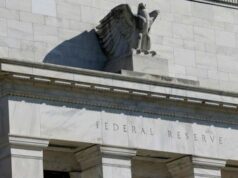Gov’t to issue Marawi bonds for large-scale infrastructure projects
THE GOVERNMENT is looking to issue its planned Marawi bonds to help fund large-scale infrastructure projects covered by the second phase of the rehabilitation plan for the city, the Finance department said in a statement on Thursday.
Finance Secretary Carlos G. Dominguez III said the government will issue the bonds during the next phase of the Bangon Marawi Comprehensive Rehabilitation and Recovery Program (BMCRRP), which will involve large, “cash-intensive” infrastructure projects.
“When we start getting into the bigger expenditures, then we will be issuing the Marawi bonds,” Mr. Dominguez said was quoted as saying at a recent press briefing in the statement.
“But there has been a lot of work, especially in providing housing and water and sewage disposal facilities for the residents in that area already. So fortunately, we’ve been able to fund it from the GAA (General Appropriations Act), and when we get to the real big construction projects, that’s when we will be issuing the bonds,” Mr. Dominguez added.
National Treasurer Rosalia V. de Leon said the government still needs to “calibrate” the size of the Marawi bond issue based on the financing requirements for the implementation of the rehabilitation program.
Ms. De Leon added that the government is eyeing several features to make the bond issuance attractive to investors, including making the papers eligible as lenders’ alternative compliance to Republic Act (RA) No. 10000 or the Agri-Agra Reform Credit Act.
“In preparation for that, we’ve also been doing some features, including the Agri-Agra eligibility that we have secured to make the bonds more attractive. In fact, there are also some structures that we are also considering to make it more attractive to retail investors,” Ms. De Leon said.
RA 10000 requires banks to set aside at least 25% of their loan portfolio to the sector, split into 10% of agrarian reform beneficiaries and 15% for farmers and fisherfolk. However, lenders have said they find it difficult to meet this credit quota and would rather pay penalties than take on the greater credit risk often attached to lending to members of these sectors.
Last year, the Department of Finance (DoF) said the Marawi bond offer may total P40-60 billion in a span of five years.
Marawi City was devastated after a five-month battle between government forces and Islamic State-inspired militants that ended in October 2017.
In November, the DoF said multilateral funding agencies and foreign governments pledged P35.1 billion in assistance for the rehabilitation of the war-torn city, covering almost half of the estimated P72.58 billion needed for the overall recovery program. The balance will be sourced locally, Mr. Dominguez earlier said.
Those that made pledges were the Asian Development Bank, World Bank, International Fund for Agricultural Development, and the governments of China, Japan and Spain. Of the total pledges, P32.7 billion will be in the form of concessional loans, while P2.4 billion will be in grants.
The United Nations and the governments of the United States, Australia, China, Germany, Japan, South Korea and Spain also extended technical assistance and preparatory support for the implementation of the BMCRRP.
The P72.58-billion estimated budget, which will be spent up to 2022, includes P47.2 billion for the overall BMCRRP; P17.20 billion for the rehabilitation of the approximately 250-hectare area that was most affected; P1.25 billion for livelihood assistance projects; and some P6.9 billion in humanitarian assistance required in the early stages of the recovery program. — KESF



